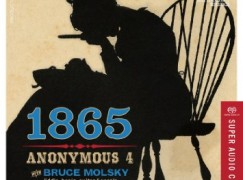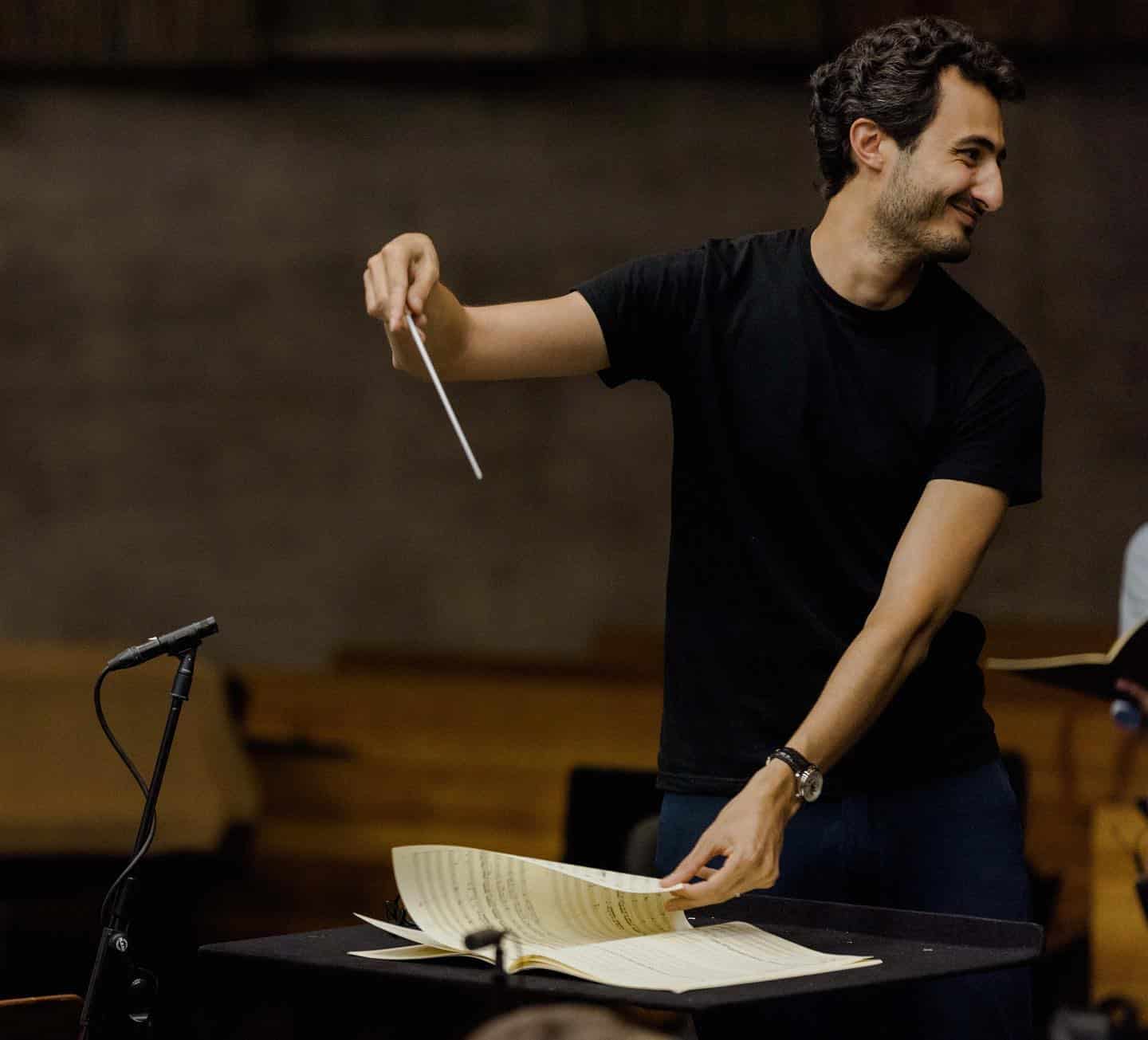Charts gloom as top US classical release sells 189 copies
mainThe classical sales situation in the US has hit the pits. Aside from Andrea Bocelli, who trundles on at around 400 a week – cds and downloads combined – the best performer on Nielsen Soundscan was the Anonymous 4, chirping sweetly on a farewell tour with just 189 registered sales.
Sales are so bad that Hilary Hahn, at number 10, failed to clear 100.
What does an artist have to do in 2015 to make a mark on the US market?

Not even American heritage sells.





I really can’t imagine the potential market for the new Anon 4 release, bless their hearts. It has nothing to do with medieval music, their original niche, nor contemporary music, a secondary niche, nor really anything to do with folk music. And the number of enthusiasts celebrating the end of the War Between the States can’t be very large. What an odd way to close out a noted career.
It is the sesquicentennial of the American Civil War, so the timing does makes some sense.
I must be the only one in the US buying CDs.
Some news for you, Norman: EL James sells more books than Proust. Pop “music” sells more music than Bach.
Hardly a valid comparison. Just about any author sells more books than Proust.
And I would be reduced to a choice between her and Black Sabbath before I would ever plonk down a buck for Hilary Hahn. Saw her in concert– proficient or not, she was the chilliest performer I have ever seen. Her CDs could probably refrigerate rooms
What rubbish!
I am at least one more….
I recall an album of music from Ken Burns’ Civil War documentary series did well back in the 90s so the idea is not entirely without hope.
makes for amusing news from time to time, but norman, lets have standards will you? If Igudesman & Joo are “classical mhsic” so is Bocelli. The world thinks he’s a Tenor- no matter what you or anybody says. Its the new definition of “classical music” I keep talking abt. According to yours, in a couple of years time what you consider classical music wont even be part of the nielsen scans. Its all Niche now.
Sadly, this decline has been taking place for a long time. One of the major problems is that classical music has suffered due to being downsized or eliminated in main stream education. No, not everyone who studies classical music becomes a professional musician, however the value of learning music along side with academics adds value to the complete learning experience and support for the arts is directly influences by the shortcoming of exclusion of the arts in education. Testing and assessments have grown beyond effectiveness and positive changes are overdue. One of the major obstacles is that music education is most often seen as a separate activity and not an enhancement to all learning. Over the last decade have composed an inclusive music curriculum that connects with academics in hopes of addressing the matter. Real improvement can take place and overtime a new classical music renaissance can and will transpire. Hope you will help get the word out about stringquest.com 🙂
Really? It’s about education? So the reason other music is popular is because it’s being taught in the classroom? I think not. I learned to love classical music because it was played in my home and was most of what I heard from the time I was six years old. We made up stories and played games to the music. I didn’t know there was anything else. I think we love what is familiar to us and reminds us of good times. I’ve not been to any hip-hop or rap classes, but they sure are popular.
Hopefully this week’s purchase of Britten’s cello concerti, Mozart’s church chamber sonatas, the Steinmeyer organ at Nicadaros Cathedral, and Arensky piano trios will cause a stir on the CD sales register! All highly reviewed in Choir and Organ, BBC Music, and Grammophone.
I stopped buying CDs, but for different explicit reasons than most. I have roughly 4,000 CDs and I have not played one in two years. Instead I have been attending 100 concerts a year (over 200 last year) and recording the majority of them for the last three years. This has heightened my awareness that commercial recordings are fake and music distribution deeply flawed. I posit this has lot to do with the drop in record sales.
Classical music adopted pop recording techniques with dozens of microphones and tracks, splicing together little bits to make a musical sausage where everything matches the score but nothing fits together like a live concert. The arc of expression is lost and I now find it unlistenable.
A recent experiment in Japan showed that classical listeners prefer the sound of unprocessed live recordings over the most finicky and revered studio productions, proving my thesis that Human is Better Than Perfect.
OTOH, anything less than perfect on the audio side also degrades the experience of listening to reproduction of music. In particular, the ubiquitous file compression of digital music distribution erases nuances and confuses ears on a subconscious level. I refuse to listen to iTunes, MP3, Spotify or YouTube because they scramble my hearing. I swear I can tell the difference in playing between conservatory students who listen to headphones all day and those who practice acoustically more than they listen to reproduction..
Live music FEELS better, as does recording in a real concert hall or chamber hall, high resolution files (better than CD quality), upgraded audio gear and calibrated listening room acoustics.
The triple whammy of studio fakery, distribution downgrading and convenience of free music streaming means there is no climbing out of this hole, except by forcing our children to play acoustic instruments and keeping them off the internet – or spending a few grand on minimum grade high res audio and paying $20-$40 for high resolution album downloads and SACDs.
I should mention that high density music files are over 2GB per hour so you will need a much bigger hard disk. I have 4TB so I can listen to my live recordings.
Your comment has made the most sense to me. As a musician and also a teacher, I try to be sure that our students have acoustic experiences with music and not always digital. It is an uphill battle but one I will happily continue to fight. Thanks for your post.
re; Lawrence De Martin,
So your solution is to create product that appeals strictly to a shrinking market…. no dude.
Recordings are an art in themselves. A recording, I don’t care how “live” it’s engineered is a recreation of what happened live. It’s not the same thing, it’s not the same “being” in the metaphysical sense of the word… just like a painting is not a photograph is not a person.
If you prefer to experience your catharsis by listening live, do that. But if you want to make classical music economically viable, you have to render it in a manner that modern man prefers, which is on a recording, with compression, with cool mic choice/placement, with EQ, with sonic maximizers, with stereo imaging, and all of the other artistic choices producers, engineers, and artists make.
I have access to Neilsen Soundscan as part of my job, and I can say without a shadow of a doubt that your numbers are just wrong. The sales are not great, but the picture you’re painting is a lot darker than reality. For example, Diana Damrau sold almost 200 copies of her new album last week, and she was ranked #18 overall. There are still artists that sell thousands of copies a week, albeit, these artists have large audiences in the “pop” world.
Check again. Diana Damrau came third in the chart with 171 sales (not ‘almost 200’). Next were Andre Rieu and Avi Avital. All the rest were below 150. These numbers are accurate and double-checked. I’ve no idea what nits you are trying to pick from your university computer.
Diana Damrau was #3 on the traditional chart, and #18 on the overall sales.
The Top 3 on the overall chart were 1) Battlecry by Two Steps From Hell (w/ 3,482 sold), 2) Shatter Me by Lindsey Sterling (w/ 1502 sold), and Wonders by The Piano Guys (w/ 767 sold).
Love in Venice was #19 on the overall chart with 169 sold and Avi Avital sold 151.
The fact that I’m a graduate student in university should devalue the facts that I am literally copy and pasting from the Neilsen Soundscan charts for the week ending 5.3.2015.
You are reading off the classical crossover charts, which are peripheral to this discussion. We are concerned with classical sales.
The overall charts have the same “Top 3” as the classical crossover charts this week.
“What does an artist have to do in 2015 to make a mark on the US market?”
I have some suggestions… though there’s a generational gap here I believe that most of this will be declared unfeasible.
-Reformation of the conservatory system that doesn’t put so much emphasis on competitions or note perfection. Plus, a complete abandonment of all post-modern underpinnings as it pertains to what is encouraged of composition students.
-An attitude adjustment of your average working classical musician who struggles with their own inner self-worth, despises American culture, lacks basic communication skills & charisma, and always seems to have a head cold.
-A concerted effort to make symphony orchestras for-profit endeavors, which would force those orchestras, maestros, et al to innovate in recordings, technology, and the overall concert experience. I would estimate that there are 100 million kids and young adults in the US who have NOT heard music that isn’t amplified (with the exception of perhaps a marching band) that would be MORE than obliged to hand you their money. They are starved for something “new.” It’s about time the classical community tried some MARKET SOLUTIONS.
-This is going to happen anyway, but reviews of recordings/concerts/artists should be (and will be) crowdsourced content. Critics get their info pushed on them from expensive publicists hired by a label in hopes that it begets enough quotes to be able to fill a bio so the managers can pitch the artists to perform the same 7 or 8 concertos for exorbitant fees that most pop/rock musicians don’t even see. (The “critics” might be in as dire situation and in need of a savior as classical music.) As it has for many other businesses, this will compel classical musicians to have to go direct to consumer…. what a novel idea….
Is it better to sell many records in a short amount of time and nothing over the following years (typical of popular music) or a few records each week over a much longer period of time? If you looked at a different time period, such as total sales over 5-10 years, you would get a very different picture. The classical back catalogue still sells in the way much popular music does not.
While it doesn’t produce the same sort of revenue as album sales, it should be noted that people are still listening to classical music through other means. Spotify streaming (and that of competitors), if factored into the chart on a somewhat more fair basis, would raise those totals. Take for instance new release “Vivaldi” by Avi Avital. Of all 17 tracks, only 1 has less than 2,000 listens on Spotify, and as of right now, it is also pretty close to crossing that mark. The very simple reason for the low sales figures seen here, is that more and more people are beginning to discover that physical media is less convenient and are switching to other means of entertainment consumption.